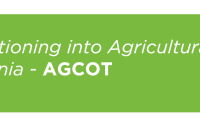Anthony John Mtaka: Njombe Cultivating Prosperity Through Dairy Farming and Beyond
Neema Munisi
The Njombe region, under the visionary leadership of Regional Commissioner Hon. Anthony John Mtaka, stands at the brink of an unprecedented agricultural and economic transformation. This period, poised to be remembered as a renaissance for the region, is guided by Mtaka’s comprehensive and forward-thinking strategy. This strategy, with a significant emphasis on dairy farming and infrastructural development, is meticulously crafted to propel Njombe into an unprecedented era of prosperity and self-sufficiency.
Dairy Farming Revolution: One Cow, One Household: Drawing inspiration from similar successful initiatives in Rwanda, Anthony John Mtaka’s ambitious project is set to distribute one dairy cow to every household in Njombe. This revolutionary plan is not just about enhancing milk production; it is a holistic approach to empower the local community, ensuring food security, and fostering economic independence. By selecting dairy cows that are specifically suited to Njombe’s cooler climate, this initiative is strategically designed to create a sustainable and highly productive dairy farming sector.
Kitulo: The Dairy Heartland of Tanzania: At the heart of Hon. Mtaka’s vision lies Kitulo, an area blessed with a climate comparable to the dairy-rich regions of the Netherlands. This area is earmarked to become the central hub for dairy farming in Tanzania, with a clear aim to produce high-yield dairy cows. The overarching goal is to diminish the country’s reliance on dairy imports and establish Kitulo as the primary source for quality dairy cattle. This transformation aims to redefine Kitulo as a symbol of national pride in dairy production.
Infrastructure as a Catalyst for Growth: Understanding that the bedrock of sustainable development is robust infrastructure, Hon. Anthony John Mtaka has outlined comprehensive plans for significant infrastructural enhancements. These developments include the construction of a state-of-the-art airport and a strategically located dry port in Makambako, along with a railway line connecting Ludewa to the Mtwara port. These infrastructural projects are envisioned not merely as improvements in connectivity but as critical gateways opening up Njombe to both national and international markets. This infrastructure is pivotal in making Njombe an attractive and lucrative destination for investors and entrepreneurs, both domestically and globally.
A Community-Centric Approach: A unique aspect of Mtaka’s vision is its holistic approach that seamlessly integrates agriculture with community development. Schools in Makete, for instance, are set to be actively involved in fodder production. This initiative is designed to create a self-sustaining ecosystem where education, agriculture, and business synergistically intersect. The model aims not only to provide schools with a new source of income but also to ensure a steady supply of fodder for the cows, which in turn supports local dairy processing and distribution businesses.
Empowerment Through Agriculture Hon. Anthony John Mtaka’s plan transcends the boundaries of a mere agricultural project; it is envisioned as a movement for empowering the community. By providing each household with a cow, the initiative aims to instill a profound sense of ownership and responsibility within the local population. It is a strategy aimed at inculcating the values of self-reliance and demonstrating the immense power of collaborative effort in achieving both economic prosperity and social advancement.
Challenges and Solutions: The implementation of such a comprehensive and ambitious plan does not come without its own set of challenges. Key challenges include ensuring the health and productivity of the cattle, providing the local population with adequate training in advanced dairy farming techniques, and creating efficient supply chains for the collection and distribution of milk. To effectively address these challenges, the regional government plans to engage in collaborations with agricultural experts, invest significantly in veterinary services, and establish extensive training programs for local farmers.
Environmental Sustainability: Hon. Anthony John Mtaka is acutely aware of the environmental implications associated with a large-scale agricultural project. Consequently, measures are being implemented to ensure that farming practices are environmentally sustainable. These measures include the efficient utilization of water resources, the implementation of effective waste management systems, and the maintenance of biodiversity, particularly in ecologically sensitive areas like the Kitulo National Park.
Economic Diversification: While dairy farming is the cornerstone of Mtaka’s vision, the plan for Njombe includes a broader perspective of diversifying its economic activities. This diversification strategy includes promoting various other agricultural ventures, encouraging the growth of small businesses, and developing the tourism potential of the region. Special emphasis is placed on ecotourism in Kitulo National Park, known for its unique and diverse flora and fauna, which presents a significant opportunity for economic growth.
The Role of Media and Public Awareness: Hon. Mtaka emphasizes the vital role of media in this transformative journey. The media is instrumental in showcasing the region’s potential and the ongoing progress of the initiatives. By effectively highlighting these aspects, the media can play a pivotal role in attracting investors, inspiring the local community, and ensuring transparency and accountability in the implementation of the project.
Long-Term Vision: A Model for Tanzania Ultimately, Mtaka’s vision for Njombe is not confined to transforming a single region; it is about setting a precedent for the entire nation of Tanzania. By successfully implementing this model of integrated rural development, Njombe has the potential to become a template for other regions across Tanzania. This template exemplifies how agricultural innovation, coupled with strategic infrastructural development, can lead to holistic socio-economic growth and development.
Under the guidance of Honorable Mtaka, Njombe is poised to emerge as a symbol of Tanzania’s immense agricultural and economic potential. His vision presents a balanced blend of traditional and innovative approaches, combining local insights with global perspectives, and emphasizing individual responsibility alongside communal growth. As Njombe stands on the threshold of this exciting new chapter in its history, it represents not just a region on the rise but a beacon of hope and a blueprint for a prosperous, self-reliant future for Tanzania.
+++Neema Munisi is a leading expert in agribusiness and gender-focused food systems. She is also a trainer on business-related topics. For consultancy, write to her. Email: neema.munisi80@gmail.com


